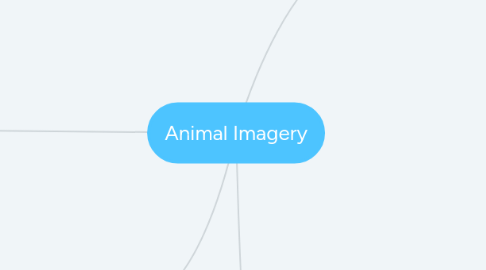
1. "Tigress"/ "Vixen" (Isabella)
1.1. "Tigress"
1.1.1. Stalks her Prey
1.1.1.1. Obsessed with Heathcliff
1.1.2. Predatory
1.1.3. Royal
1.1.3.1. Part of the upper class
1.1.4. Nurturing/Protective
1.2. "Vixen"
1.2.1. Female Fox
1.2.2. Malicious/ Temperamental woman
1.2.3. Promiscuous Woman
1.2.4. Vermin- Hunted by Humans
2. "A bird of a bad omen" (Heathcliff)
2.1. "Omen"
2.1.1. Connotations of bad fortune and death
2.1.1.1. Mr Earnshaw dies soon after Heathcliffs arrival at Wuthering Heights
2.1.1.1.1. Heathcliffs a Gypsy
2.1.1.1.2. May have been a 'curse'
2.2. "Bird"
3. "They are Dove's eyes" (Isabella)
3.1. Peace
3.2. Escape/flight
3.2.1. Victorians were familliar with
3.2.1.1. (Due to popular art)
3.2.2. Key to Gothic Genre
3.3. Special Status
3.4. Gentle
3.5. Mate for life
3.5.1. Loyalty
3.6. Romance
3.7. Natural Imagery
3.8. Positive
3.9. Christian symbol
3.9.1. Noah's Ark
3.9.1.1. Hope and Promise
3.9.2. Symbol of the Holy Spirit
3.9.2.1. Pentecost
3.9.2.2. Baptism of Jesus
3.9.3. Supernatural
3.9.3.1. Emily Bronte's father was a priest
3.9.3.2. Cathy/Heathcliff viewed Thrushcross grange as Heaven, associated with Isabella/Edgar
3.9.3.2.1. Isabella is at first Angelic- becomes a fallen angel when she comes to Wuthering Heights.
4. "A fierce, pitiless, Wolfish man" (Heathcliff)
4.1. Split Personality
4.1.1. Wolf/Man
4.2. Fantasy
4.3. Controlled by nature. E.g, the moon
4.4. Like dogs= lower status
4.5. Writer= inspired by her own dogs
4.6. Wolfs were not in England when Bronte wrote it
4.6.1. They were foreign to her
4.6.1.1. Much like Heathcliff
4.7. Biblical
4.7.1. Wolf= Greedy/ Dishonest gain
4.8. Classical Mythology
4.8.1. Nurturing and Protecting characteristics (lupa from roman mythology)
4.8.2. Remus and Romulus
4.9. Hunted by Hindley
4.10. "The boy who cried wolf"
4.10.1. "a wolf in sheeps clothing"
4.10.1.1. (or the opposite)

